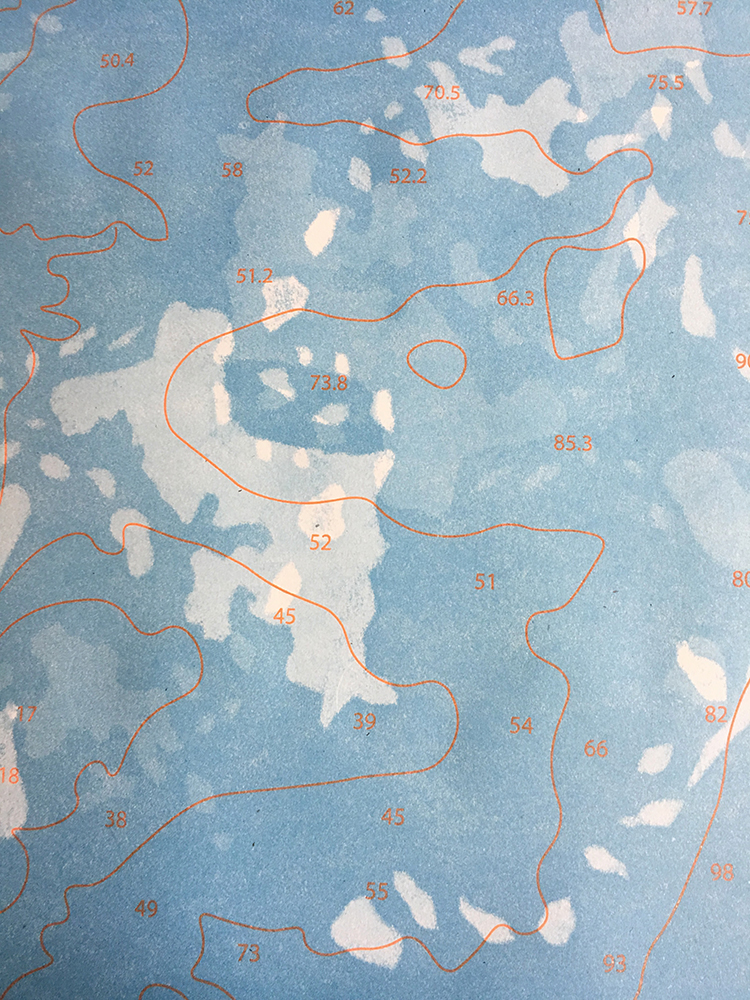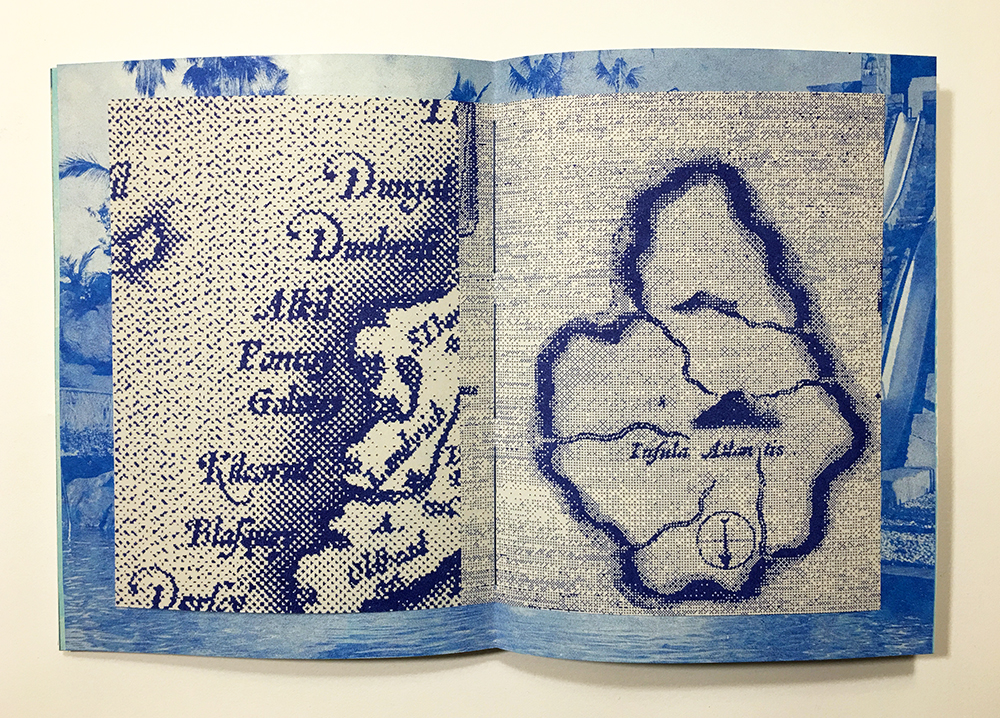The first section of my new book is about the role that islands play in our collective imagination. One of the reasons I wanted to make a book about disappearing islands is the disconnect between the images we create and consume of islands, and the actual lives lived on islands. Our understanding of islands and of islanders is partly informed by all of the stories told about islands, most of which are examples of projected desire.

Atlantis is the classic disappearing island myth, and the descriptions of it demonstrate this. Plato was the originator of the Atlantis myth, writing about the fictional island within a larger allegory of nations, where it plays antagonist to Plato’s ideal state of Athens. He describes the people of Atlantis like so in his dialogue Critias:
They despised everything but virtue, caring little for their present state of life, and thinking lightly of the possession of gold and other property, which seemed only a burden to them; neither were they intoxicated by luxury; nor did wealth deprive them of their self-control; but they were sober, and saw clearly that all these goods are increased by virtue and friendship with one another, whereas by too great regard and respect for them, they are lost and friendship with them.
In the end, Athens defeats Atlantis, the gods turn on the island, and it sinks into the Atlantic. But our impression of the place remains that of a lost paradise.

Beginning in the sixteenth century, scholars in Europe began to associate the myth of Atlantis with the New World, and writers begin to embellish on the story of Atlantis in far-fetched works of pseudo-history. The story of Atlantis became part of the popular imagination again because it fit into larger utopian and/or apocalyptic allegories about societies that scholars were interested in. But it was often presented as literally true, and there were competing theories for where Atlantis had actually been located. For Europeans, large areas of the world that no one had suspected were there had suddenly emerged, and if that were true, there may very well be a large lost island somewhere under the Atlantic.

Atlantis: The Antediluvian World is a book published in 1882 by Ignatius L. Donnelly, an American congressman, writer, and amateur scientist. In it, he argues that the fable Plato had spun was literally true and that Atlantis was destroyed during the same event that Noah experiences in the Great Flood of the Old Testament. In fact, all ancient civilizations were descended from this one lost island. The ideas that Donnelly explores in his book are the source of many of the funny ideas we have in our heads when we think about Atlantis today: a place full of advanced-for-its-time technology, the mythical lost birthplace of all civilizations, a place sacrificed in a struggle between good and evil. Atlantis is the stand-in for all lost utopias.

And islands in general are often conceptualized as utopias; the ideal place off the coast of nowhere. Utopia literally means nowhere; the word comes from the Greek “ou” meaning not and topos, meaning place. Not-places are made to be dreamt about from a distance, as in Thomas More’s book Utopia, about a fictional island society and its social customs. And More’s Utopia, like most European stories about islands, is an island in the New World, a place he can describe but not be a part of.
In practice, Europe colonized the islands of the New World, which means that island utopias are meant to be idealized, then conquered, then exploited, until they are no longer utopias. Colonialism and stories about island utopias go hand in hand.
